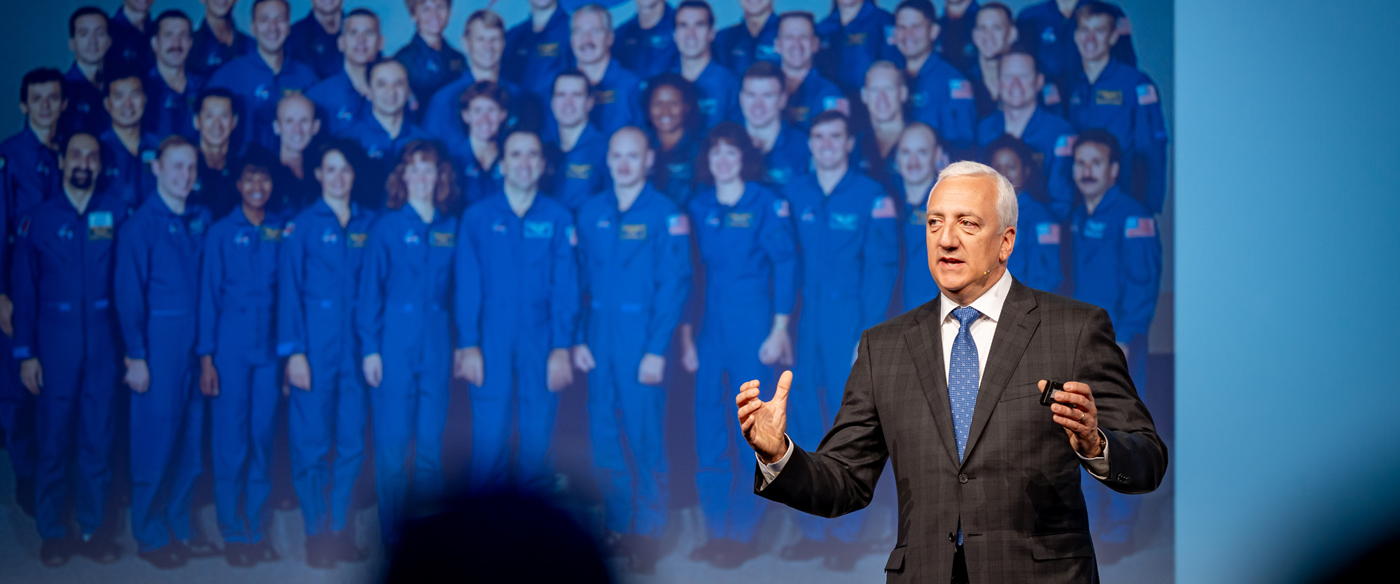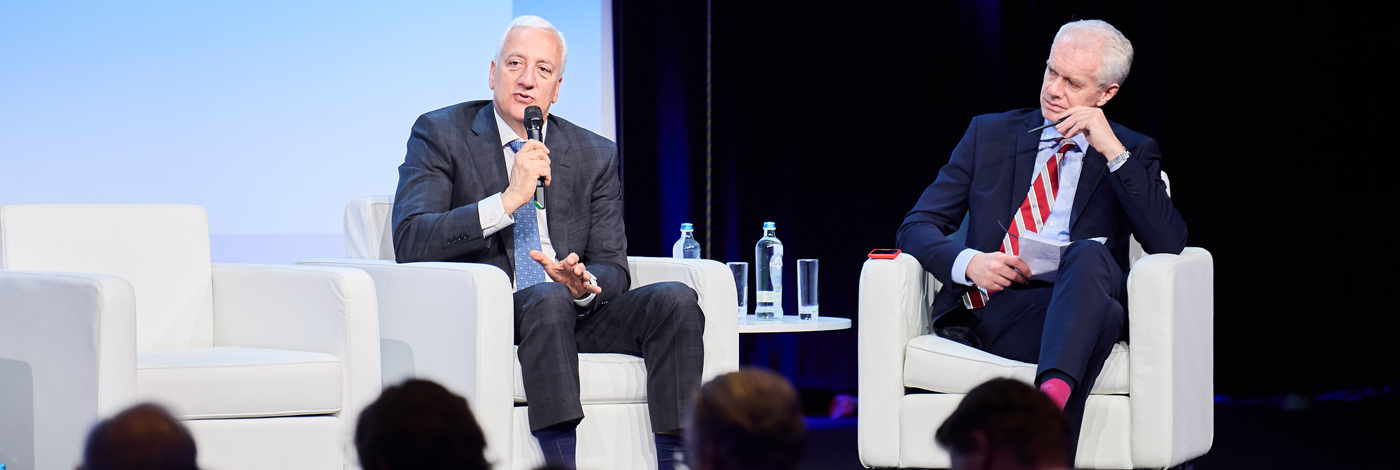2025 Annual Conference – Opening session
Tuesday, Apr 15, 2025
Exploring new frontiers for agri-food system transformation
Janez Potočnik, Chair ForumforAg 2025 and Chairman RISE Foundation, welcomed participants attending in person and on-line to the 2025 Annual Conference with its overarching theme: ‘Exploring new frontiers for agri-food system transformation’.
He noted that Europe is at a strategic crossroads. It faces two main alternatives: going defensive or becoming a well-recognised, listened to, strategic power. The latter requires greater fiscal, external and defence integration, free movement of knowledge and an economy based, not on ownership, but on access and sharing.
“The European Green Deal kickstarted EU-wide efforts for a very much-needed whole economy and society transformation,” he told the Forum’s 17th annual conference. The direction it set should remain “the North Star” for the future.
The current focus on new geostrategic realities and the need to strengthen Europe’s competitiveness, fairness and security cut across policy areas. All are important priorities. They must be integrated into the European Green Deal vision to ensure “a well-balanced systemic strategic approach”, since natural resources are the very foundation of our economies and societies.
The former European Commissioner cited a recent Global Resource Outlook report. This underlined that energy, food, the built environment and mobility provide four basic human needs. They account for 90% of all global material use. While those needs vary considerably across country income groups, food must be the top priority.
In the current climate, “farmers deserve even more attention and even more support. Exploring new frontiers of the agri-food system transformation, the substance leading our debates today, is thus a must,” he said.
Mr Potočnik welcomed the Commission’s Strategic Dialogue on the Future of Agriculture and Agriculture Commissioner Christophe Hansen’s recent Vision for the Future of Agriculture as key ingredients in the direction ahead.
Alongside these strategic documents, he referenced the Forum’s own Call to Action, now in its second year. This contains seven commitments to transform the agri-food system. The second emphasises the need to conserve and improve soil health. Later, the Forum demonstrated that commitment by presenting, for the first time, the annual award for soil and land management.
Out of this world perspective on agri-food system transformation
Mike Massimino, former NASA Astronaut and Professor of Mechanical Engineering, Columbia University, started his inspirational talk by thanking the conference delegates for all their hard work in helping to feed the world and solve the problems facing the planet. He then went on to speak with passion about his time in space and explained how his unique experience provides important lessons and perspective that can be brought to bear when tackling the many challenges facing planet Earth.
Firstly, the mission is paramount and bigger than any individual. “If you keep that in mind, then you can cooperate no matter who it is you’re working with.” As an example, he pointed to the International Space Station where the US, Russia and six other countries, irrespective of any terrestrial tensions, collaborate closely on the common goal of space exploration.
“When you have that common bond, I think that overrules any differences you might have,” he said, adding: “and I would think the same is true for agriculture and growing food and solving all these problems”.
One should never lose sight of the big picture. “For me, it was the space programme that was my passion. For all of you feeding the world, solving a lot of the problems related to agriculture and keeping the world healthy and planet healthy, it is what you work on every day,” he told his audience.
From space, Earth acquires a whole new dimension. “It is perfect. It is beautiful. I can’t imagine anywhere more beautiful than planet Earth. This is what heaven must look like. At that moment, I felt I was looking into absolute paradise,” he said, describing his second spacewalk.
He emphasised the fragility of that paradise and the pressure being placed on the atmosphere which appears as an extremely thin blue line when photographed from space. “You can hardly see it. That is the only thing that’s keeping us alive. If you think of the Earth as an onion, the thin top layer of that onion is the size relationship of our atmosphere to the rest of the planet.”
While some thoughts turn to the possibility of life on the moon or Mars, the astronaut’s feet remain on the ground. Mike explained that he supports further moon exploration as ways to develop technologies to improve life on Earth. “I really think that leaving our planet is about preserving our planet. We’ve checked out the neighbourhood. We’ve got nowhere to go. We’ve got to make this planet work. There is no Plan B.”




